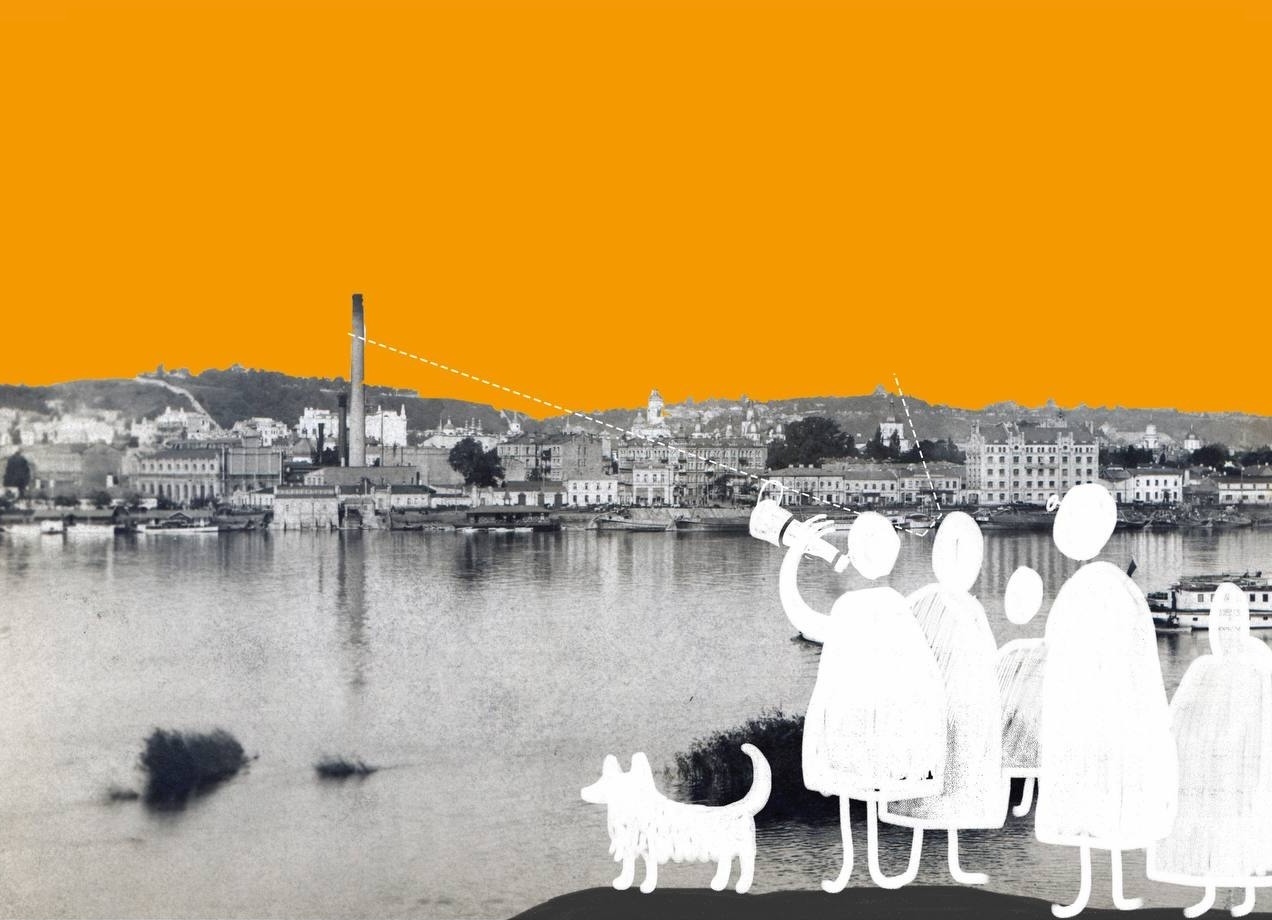
Project Release Date 01.02.2022
A course, dedicated to Kyiv Podil's abandoned buildings, has combined renovation theory, hands-on activities and urban field research.
About the course
The Renovation Map created an educational course on why and how to study the valuable abandoned spaces and historical buildings of our cities in the context of Kyiv’s Podil.
Theory of renovation is combined with practical modules and field research. Participants applied all gained knowledge in their individual research of abandoned buildings. Our team constantly supported the participants and provided them with all needed tools, instructions, government appeals templates etc.
All the materials created during the course, all buildings researched were presented on the course's final event (all in Ukrainian):
- course lectures on YouTube
- 5 guides for an active citizen
- 87 abandoned Podil buildings on The Renovation Map website

A lecture
Modules
The course consists of three modules. Urban Research, The Renovation Theory and Civic Tech.
The "Urban research" module was designed to immerse participants into the heritage-related processes which take place in the city. It also presents the structure of the research process. The participants took part in the field research, exploring abandoned buildings and investigating their history and architectural details, urban and legal contexts.
“The Renovation Theory” module explained a theory of renovation and heritage preservation, and introduced modern approaches to the abandoned city space re-thinking.
The last "Civic Tech" module described an interaction between citizens and a government for the purpose of preserving historical buildings. The important tool which enables this interaction is civic technologies which are covered in detail here.

Module 1: Urban research
- Lecture 1 : Introduction into abandoned architectural heritage
- Lecture 2: Field research for abandoned architecture
- Lecture 3: Laboratory research
- Lecture 4: Investigating a building’ history for a protection status
- Practice: Field research of Podil’s abandoned buildings in the Podil district
- Practice: Searching, processing and systematizing of buildings’ data
Module 2: The Renovation Theory
- Lecture 5: The problem of abandoned city space (lecturer: Oleksandr Anisimov)
- Lecture 6: The value of abandoned city space
- Lecture 7: The value of the architectural heritage of different epochs. Podil’s context. (lecturers: Samen Shyrochyn, Anton Korob)
- Lecture 8: The theory of renovation
- Lecture 9: The practice of renovation (lecturers: Alisa Sviatyna, Serhii Polovynko, Darya Kryzh)
Module 3: Civic tech
- Lecture 10: Local governments and government departments related to the heritage
- Lecture 11: Civic tech tools for architectural heritage monitoring
- Lecture 12: Communication. How to write on the architecture
- Lecture 13: Communication. Public speech
- Practice: Using civic tech
- Practice: Communication

Demo Day
The final event took place in the revitalized building of Kyiv Arsenal. The course participants talked about the experience gained and their own research:
- "Field research of abandoned architecture and urban spaces", Roksolana Nesterenko
- "The study of the building of the Theological Seminary", Yevhenii Shatilov
- "The value of researching little-known architecture", Jan Kot
- "Interaction with the government. Active citizens: who are they and what tools they have", Sofia Vaturlyak
- "How can the community decide the fate of a historical building in order to preserve it", Alevtyna Rutto

Abandoned Podil's study presentation
The project "In Search of Abandoned Podil" was implemented by The Renovation Map within the program "3D Project: Development despite obstacles. Sustainable Civil Society in the Pandemic and Future", which was held by the East Europe Foundation under the financial support of the European Union.
